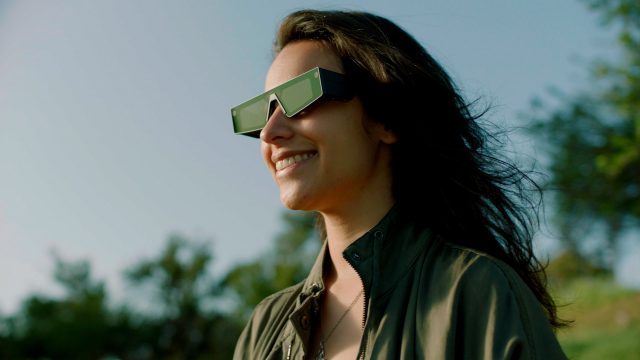
According to a report by The Verge, both Snapchat and Meta will each reveal new AR glasses for the first time next month. Both companies have been working on such projects for years.
According to The Verge’s Alex Heath, Snapchat parent company Snap Inc. will reveal its fifth generation of ‘Spectacles’ AR glasses on September 17th at the company’s annual Partner Summit conference in Los Angeles. Just a week later, Meta will debut its own pair of AR glasses (codenamed Orion, according to Heath) during its annual Connect conference on September 25th.
Snap has been building out its ‘Spectacles’ line of smartglasses for several years now, but it wasn’t until the device’s fourth generation in 2021 that it actually gained proper AR capabilities. Now the company is said to be poised to reveal the fifth generation of Spectacles which will further enhance the device’s AR uses.

Similarly, Meta has been building and improving upon its Ray-Ban Meta smartglasses since the first generation in 2021. A second generation of the device launched late last year, but the company has yet to add a display or sensors for any kind of AR capabilities.
While both companies are racing toward a future where they believe AR glasses will be mainstream, the devices to be shown off next month aren’t yet ready to be productized, Heath writes. At best they’ll be released to developers for experimentation before some future version of the products reach consumers.
According to Heath, Snap’s latest pair of AR glasses will be pretty similar to the previous generation, but with an improved field-of-view and battery life. That would surely be welcome considering the first pair had a mere 26.3° diagonal field-of-view (not even half of what you’d find on a modern MR headset) and a 30 minute battery life (also not half of what you’d find on a modern MR headset!).
As for Meta’s first true AR glasses, we’ve heard the company tease that “nothing prepares you for the high field-of-view immersion,” but it’s still unclear if the field-of-view will be large in comparison to other AR glasses, or actually approach the current bar set by VR headsets. It’s also unclear if Meta’s AR glasses will be presented as another partnership with Ray-Ban, or if it the device will use Meta-owned branding, similar to Quest.
While both companies ultimately aim to create AR headsets that match the incredibly immersive capabilities we see in MR devices like Vision Pro and Quest 3, fitting those capabilities into something that’s even close to a pair of glasses remains a huge challenge.

Best-in-class devices like Magic Leap 2 are still more like bulky goggles than glasses, and that’s even with much of the compute and battery being offloaded into a ‘puck’ that goes into the pocket.
Check out Alex Heath’s report for more background and insight on Snap and Meta’s plans to reveal new AR glasses next month.
This article was originally published on roadtovr